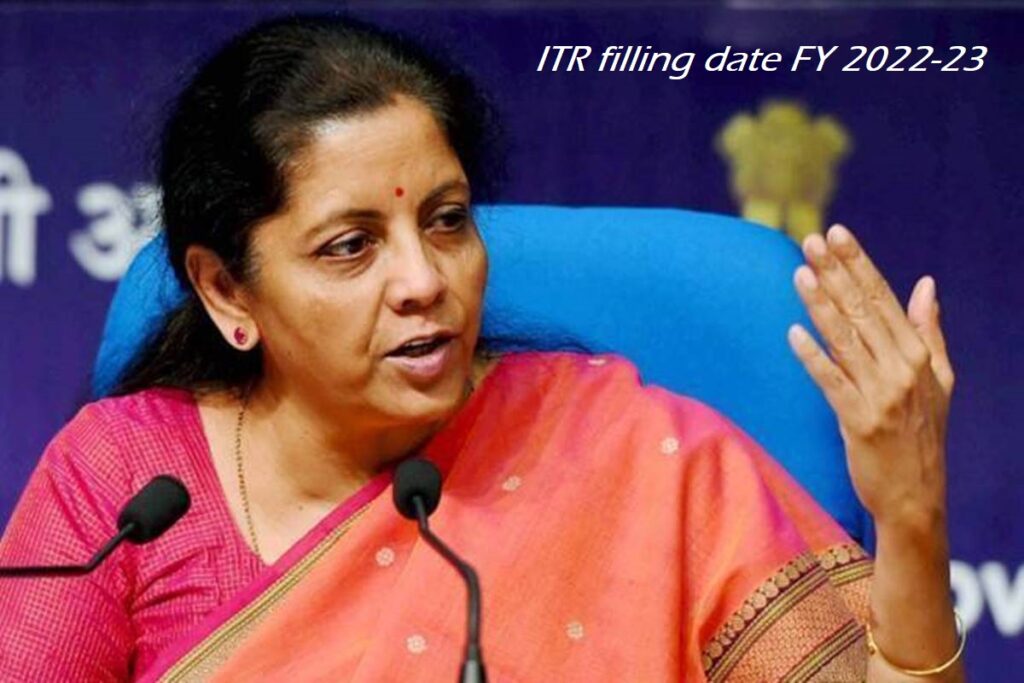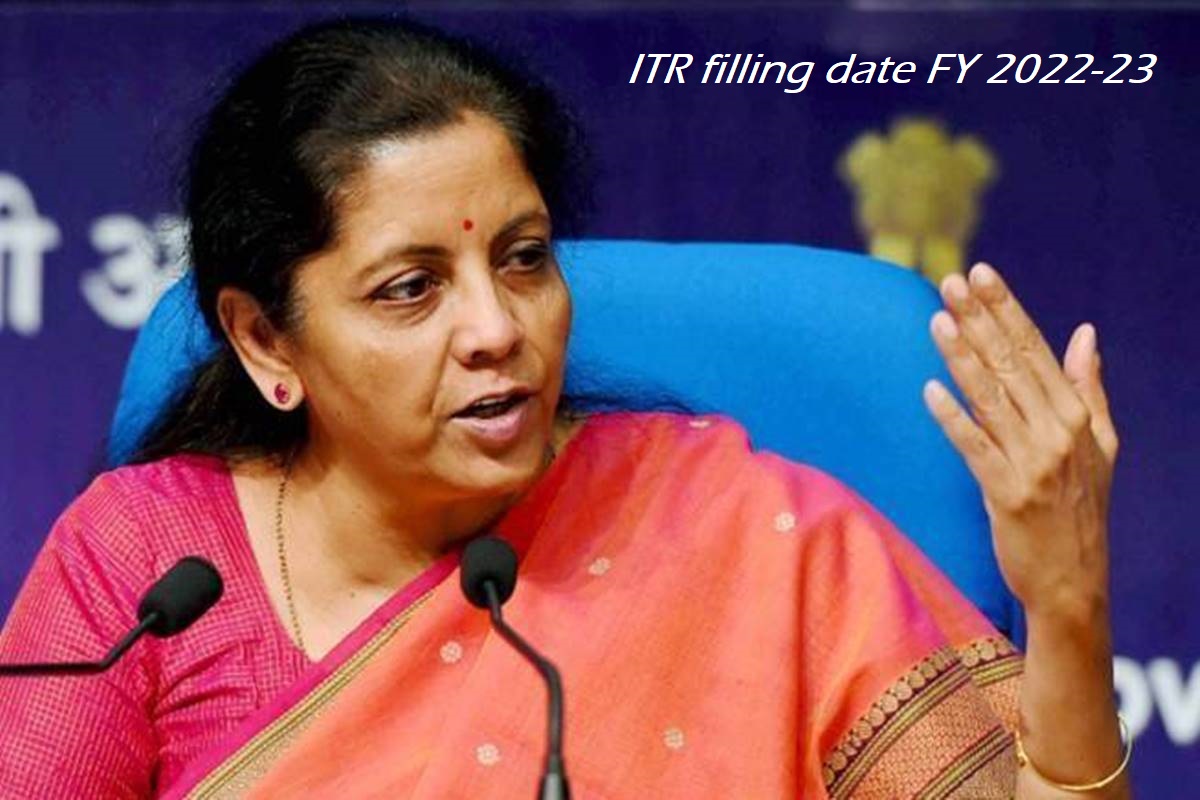Introduction
Filing your income tax return (ITR) within the stipulated deadline is crucial to avoid penalties and interest charges. In this comprehensive guide, we will provide you with all the necessary information regarding the deadline for filing your ITR for the financial year 2022-23 (assessment year 2023-24). Let’s dive in and ensure you stay compliant with the Income Tax Department while maximizing your financial well-being.

Understanding the Deadline and Consequences
The deadline for filing your income tax return without incurring a late fee is July 31, 2023. It is essential to note that if you fail to meet this deadline, you will be liable to pay interest and a penalty. The interest is charged under Section 234A, and the penalty is charged under Section 234F of the Income Tax Act.
Differentiating Financial Year and Assessment Year
Before we proceed, let’s clarify the concepts of financial year (FY) and assessment year (AY). The financial year represents the year in which you earned your income, while the assessment year is the year in which you file your income tax returns. For instance, for FY 2022-23, the corresponding assessment year is 2023-24.
E-Filing of ITR and Offline Utility
The Income Tax Department is expected to launch the e-filing process for AY 2023-24 (FY 2022-23) soon, possibly in the first week of June. Offline utilities for filing ITR-1, ITR-2, and ITR-4 have already been released, ensuring a smooth and convenient filing experience.
Due Dates for Filing ITR
The due date for filing ITR for individuals, Hindu Undivided Families (HUF), Association of Persons (AOP), and Body of Individuals (BOI) who are not required to undergo auditing is July 31, 2023. However, businesses requiring audit have a due date extension until October 31, 2023, and those requiring transfer pricing reports have until November 30, 2023. Additionally, the deadline for filing revised or belated returns is December 31, 2023.
Penalties and Interest for Late Filing
Missing the ITR filing deadline has financial consequences. You will be subject to an interest charge of 1% per month (or part of a month) on the unpaid tax amount. Additionally, a late fee of Rs. 5,000 is applicable under Section 234F, which is reduced to Rs. 1,000 if your total income is less than Rs. 5 lakh. It’s important to declare any losses in your ITR before the deadline to ensure their carry-forward for future adjustments.
Filing Belated Returns
In case you miss the ITR filing due date, there is still an option to file a return called a belated return. However, please note that filing a belated return incurs a late fee and interest charges, and you won’t be allowed to carry forward losses for future adjustments. The due date for filing a belated return is December 31, 2023.
Ensuring the Need to File an Income Tax Return
If you are unsure whether you should file an income tax return, it is advisable to read relevant articles.
Paying Advance Tax Instalments
For the financial year 2023-24, specific due dates have been established for paying advance tax instalments. The due dates are as follows:
- June 15, 2023: First instalment (15% of tax liability)
- September 15, 2023: Second instalment (45% of tax liability)
- December 15, 2023: Third instalment (75% of tax liability)
- March 15, 2024: Fourth instalment (100% of tax liability)
- March 31, 2024: Presumptive scheme (100% of tax liability)
Claiming an Income Tax Refund with Belated Returns
Even if you miss the due date for filing ITR, you can still claim an income tax refund by filing a belated return before December 31 of the assessment year. While a penalty of Rs. 5,000 is charged for the delay, it is reduced to Rs. 1,000 if your total income falls below Rs. 5 lakh.
Late Payment of Income Tax
In the event that you miss the due date for paying income tax, it is still possible to settle the payment after the deadline. However, late filing penalties and interest charges will be levied when filing your ITR. A penalty of Rs. 5,000 is applicable for the delay, with a reduced fee of Rs. 1,000 if your total income is less than Rs. 5 lakh.
Filing Belated Returns under Section 139(4)
Under Section 139(4) of the Income Tax Act, individuals have the provision to file a belated return after the due date. However, a penalty of up to Rs. 5,000 may be charged for the delay.
Understanding Different Due Dates
The due date for filing an income tax return typically falls on July 31 for individuals and non-audit cases. For audit cases, the due date is extended to October 31 of the relevant assessment year. To ensure a hassle-free e-filing experience,
Revising Income Tax Returns
If you wish to revise your income tax returns before the due date, you can file a revised return under Section 139(5). The process for filing the revised return is the same as filing the original return.
Filing Belated Returns after the Due Date
In case you need to revise your income tax returns after the due date, you can file a belated return by December 31 of the assessment year. However, please note that once this date has passed, taxpayers are unable to file any further returns. In exceptional circumstances, you can seek permission from your Assessing Officer (A.O.) to file past returns under Section 119.
Consequences of Failing to File ITR
If you fail to file an income tax return before the due date, you can still file a belated return. However, this delay will incur a penalty of up to Rs. 5,000 for the late filing of belated returns. For individuals with a total income below Rs. 5 lakh, the fee payable is Rs. 1,000.
Specific Due Dates for Trusts and Domestic Companies
For trusts whose accounts are not subject to auditing, the due date for filing ITR is July 31, 2023. If auditing is required or if a report in Form No. 3CEB is necessary under Section 92E, the due date to file ITR is October 31, 2023, or respectively.
Similarly, for domestic companies, the due date for filing ITR for FY 2022-23 is October 31, 2023. If the company engages in international transactions or specified domestic transactions and a report in Form No. 3CEB is mandated under Section 92E, the due date to file ITR is November 30, 2023.
Income Tax Audit
An income tax audit involves the examination and inspection of an entity’s books of accounts to ensure compliance with the Income Tax Act, 1961. It is mandatory for businesses with an annual turnover exceeding 1 crore and professionals with receipts above Rs. 50 lakh to undergo a tax audit.

